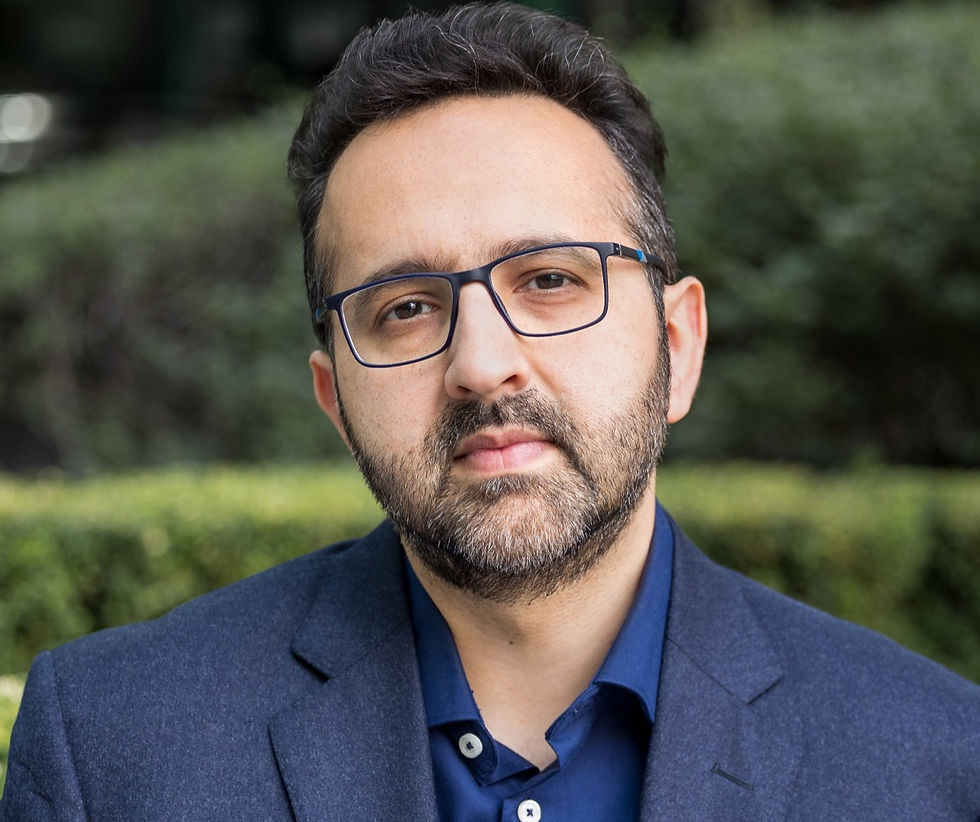David Giuliano on fiction, healing, and finding home in Northern Ontario
- Sheelagh Caygill

- Sep 17, 2025
- 4 min read
David Giuliano is an award-winning writer of fiction and nonfiction books, essays, and poems. The Undertaking of Billy Buffone, his first novel, won the prestigious Bressani Prize for Literary Fiction. His second novel, The Upending of Wendall Forbes, will be out in September 2025.

It’s Good to Be Here: Stories We Tell about Cancer, is a memoir about a 20-year journey with cancer, “to which [the author] brings fierce honesty and humour in a conversation about the metaphysics of medicine and the power of story to heal.” Giuliano has served as a keynote speaker at several medical conferences.
His collection of essays – Postcards from the Valley: Encounters with Fear, Faith and God – was a Canadian Best Seller. He has also published two illustrated children’s books: The Alligator in Naomi’s Pillow and Jeremiah and the Letter e. In this interview, David discusses the evolution of his writing, the books he enjoys, and how he found his first publisher. He also offers advice to writers. Here is award-winning author David Giuliano on fiction, healing, and finding home in Northern Ontario.
David Giuliano on fiction, healing, and finding home in Northern Ontario
OCW: Has your writing evolved over the years?
DG: For thirty years, I wrote creative nonfiction pieces, mostly about spirituality, justice, healing, and redemption. I retired early from my regular job, which opened up time to write long fiction. My novels, The Undertaking of Billy Buffone and now The Upending of Wendall Forbes, continue to explore similar themes in new ways.
As Jennifer Powell, middle school librarian, says: “I made it my mission to unteach children that 'fiction is fake.’ Here are my new definitions I started to teach today: Non-fiction=learning through information; Fiction=learning through imagination.”

My writing is less didactic, more trusting of my readers' imaginations. As for craft, I am a better writer than I was thirty years ago.
Exploring mysticism, redemption, and small-town life
OCW: Can you trace any common themes across your writing?
DG: Mysticism, healing, the power of community, forgiveness, redemption and laughter have always inhabited my writing. And, like wrestling and bears in John Irving’s novels, some things keep popping up in mine: Doors as thresholds; ravens, bears and lynx; music from the 1970s; outsiders; small town life, and imperfect, quirky characters.
I once heard a preacher say that he keeps preaching the same thing – forgiveness, or service, or love, for example - in different ways, until he gets it. I’m like that with my writing. I keep telling the same stories about redemption, healing, light and shadows, over and over. One of these days, I hope to know them in my personal life, truly.
Books about us, and the everyday
OCW: Which authors and/or types of books do you like to read?
DG: Henri Nouwen begins his collection of essays, Clowning in Rome: Reflections on Solitude, Celibacy, Prayer, and Contemplation, with this: “The clowns remind us with a tear and a smile that we are sharing the same human weakness. The longer I was in Rome, the more I enjoyed the clowns, those peripheral people who by their humble, saintly lives evoke a smile and awaken hope, even in a city terrorized by kidnapping and street violence."
I enjoy writing and reading books about characters who reflect our lives back to us. Their small acts of heroism, beauty, suffering and redemption that we are living all the time, but never make the news. Acts of kindness, human struggle, jealousy, rage and tenderness that go by unnoticed, but are microcosms of the world, universal, and give meaning to life. We often fail to notice, unless an artist points them out to us.
Two recent reads I liked a lot: My Friends, by Fredrik Bachman, and Jane Urquhart’s In Winter I Get Up at Night.
OCW: If you’ve been published, how did you find your first publisher?
DG: My first publisher was The Observer, now Broadview Magazine. I’ve read Broadview for most of my life because of its focus on spirituality, justice and ethical living, from a United Church of Canada perspective. I was writing things that reflected those same values.
When I started writing novels, I discovered Latitude 46, who publish “creators living and loving Northern Ontario, and works about the unique landscape and culture of the north.” I grew up in large cities in Southern Ontario and the U.S.A. and, nearly forty years ago, discovered a home in a small town on the north shore of Lake Superior. My novels take place in a fictionalized version of that town. I call it Twenty-Six Mile House. It seemed like a good fit.
Both Broadview and Latitude 46, felt like a good fit for me. I sent finished manuscripts to the editors. Of course, they weren’t actually finished.
Writing advice from a Bressani Prize winner: Love the process, not just the product
OCW: What advice/guidance would you give to writers?
DG: I have a background in Expressive Arts Therapy, where the act of creativity is understood as an end in itself. As we create, we explore and listen to our inner lives and participate in the ongoing creation of the world.
My advice/guidance to young writers is: Love writing. Enjoy the process. Tame the inner judges about the end product, about whether others will like it, or if you are enough. There is a scene in the 1991 movie, The Fisher King, where Parry, a homeless man played by Robin Williams, is sliding naked, on his butt, across the wet grass in Central Park. He asks Jack Luca, played by Jeff Bridges, “Do you know why dogs do this?” He answers his own question: “Because it feels good!”
Write because it feels good.



Comments